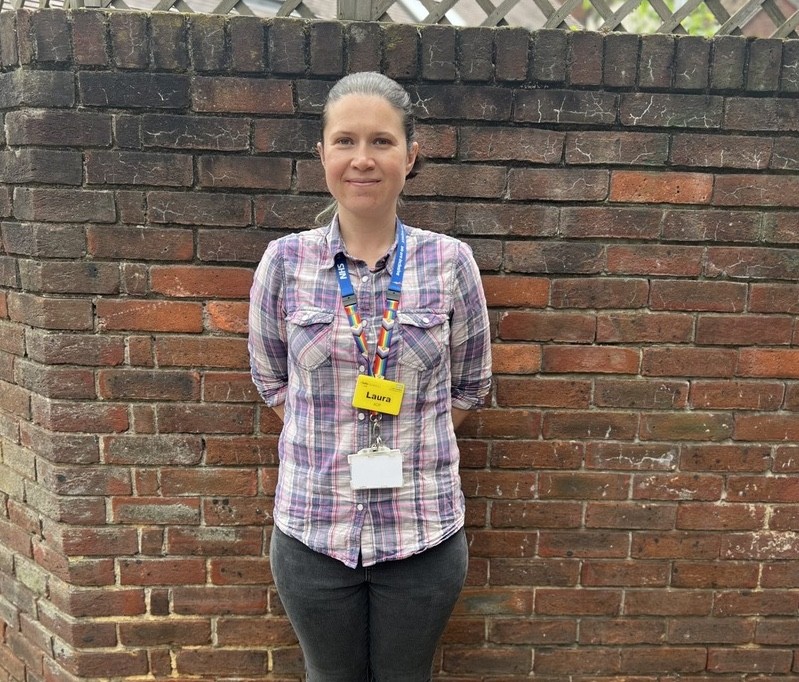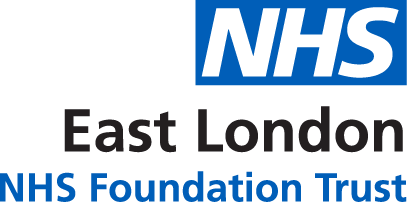Service User-Led Accreditation - Laura's Story

The Trust is the first to provide a Service User-Led Accreditation programme to help services improve their care. Service user voices are front and centre in the programme which offers bronze, silver and gold accreditation standards – and a new platinum standard reflecting exceptional commitment to patient care.
The Health E1 homeless GP practice in Brick Lane, East London, is the first primary care team to achieve the platinum standard. Senior Clinical Lead and Advanced Clinical Practitioner Laura Pisaneschi talks about how it was achieved and why.
Why did the practice apply for accreditation?
I was really keen to get Primary Care involved in the Service User Accreditation Programme. I think it’s really important to think how we’re working as a practice, the things that we’re doing, how service users actually feel about those things and to use their views and opinions to judge how we’re providing care.
What was involved in achieving platinum accreditation?
To achieve the platinum we did a lot of work, and already had a lot in place. We looked at the kind of standards we’re providing, and looked at a lot of evidence. It was a lot of trawling through patient notes, finding out exact causes of the good practice we thought we were providing. It also involved meeting with the accreditation panel, having our patients who are part of our People Participation group come along to our event and hearing from staff as well, and showing those different experiences.
So, lots of different elements but really it all came together on the day, hearing about the practice and work that we were doing, and hearing what the service users and the rest of the accreditation panel thought about the work we were doing.
How does it feel to be the first service in primary care to gain platinum accreditation?
It’s pretty amazing, I came from secondary care services and was very keen to get ELFT involved in doing the Service User Accreditation, but for lots of primary care, they hadn’t heard of it – they didn’t know what it was about, so we really wanted to champion that work and be the first in primary care to go through that accreditation process.
How does the accreditation help patients and improve the care you provide?
One of the things that came up that we could improve on is having peer support workers in place – we don’t have that in primary care. But actually its thinking about how we can provide that, and having that feedback on some of the things that we and other people thought that we were doing, because we can say ‘yes we are doing this great work’, and our People Participation group can say that, but actually hearing it from the accreditation panel and having that platinum shows us our great work, but also the things that we can improve on as well and keep learning about.
It’s helped the team to think about the next stages going forward.
Would you encourage other services to apply for accreditation?
It’s a good thing to take on, it’s a lot of work. But if you already have the evidence, it’s just finding it. A lot of the work that we had, a lot of the examples that we had, were either of patients’ notes or we had examples of meetings.
You might think we’ve got enough evidence but it’s more evidence, and the panel give you an opportunity to resend information in, so I think it’s a very good idea to get involved and see what people think about the service you’re providing, and what are the next stages and what can you improve upon.
How important is it for Health E1 to involve patients in improving care?
It’s really important for Health E1, we are a homeless GP practice, we work with people who are homeless, who are sofa surfing, who are in temporary accommodation, people who are refugees or asylum seekers, people who have been stigmatised by healthcare already, and actually having people involved and thinking about what’s important can really make a difference.
One of the things People Participation have done in being involved in patient care is things like our summer and winter fairs, so we run twice a year fairs. Having people who have that lived experience who can help share and shape how we provide patient care has been really important it’s very essential to the work we’ve been doing and I think the work we’re doing at Health E1 wouldn’t be possible without our patients.
Watch an interview with Laura:
